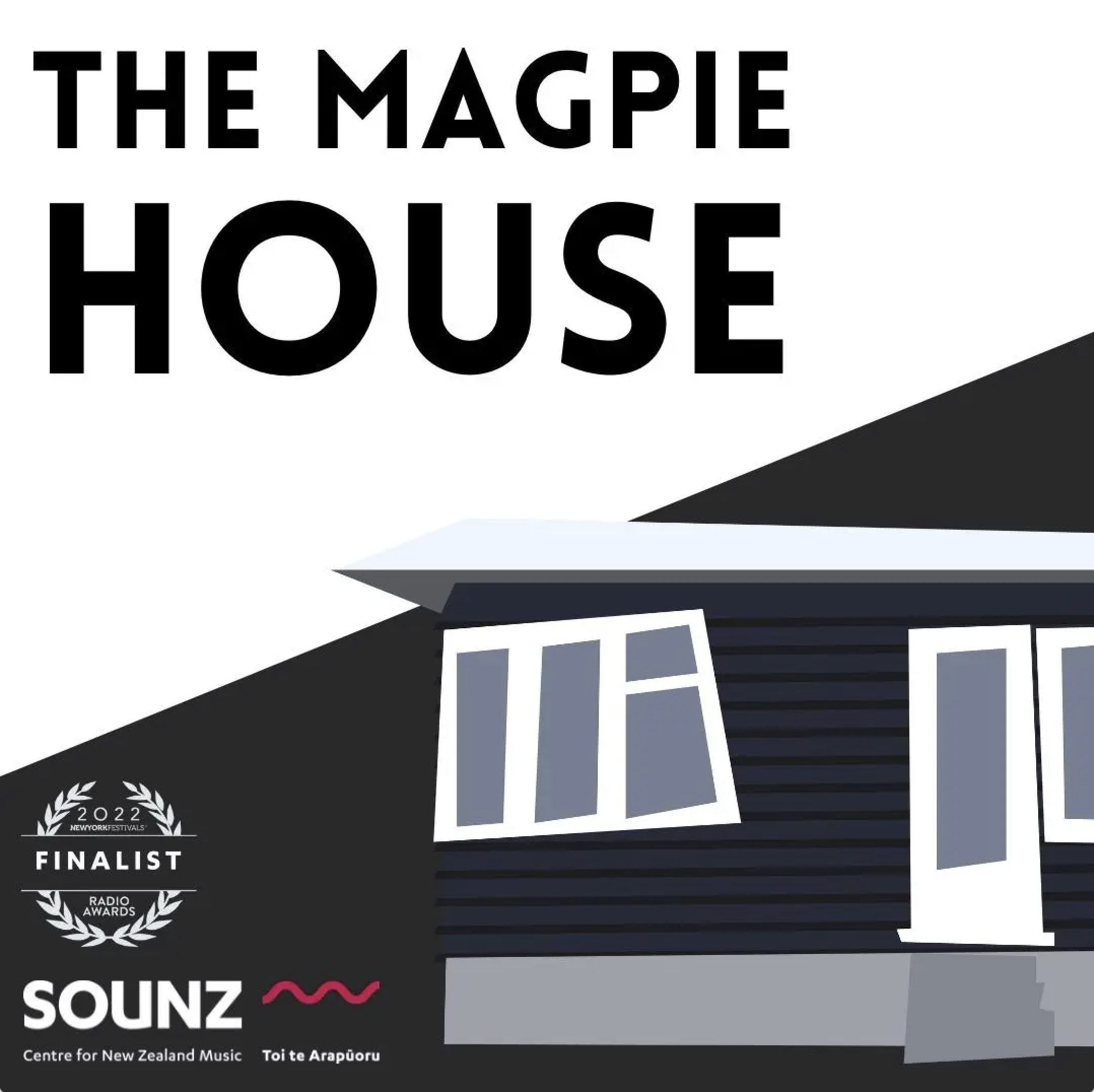In the 1970s, Lilburn wrestles with synthesizers and other machines, and comes out victorious, composing some masterpieces of the electroacoustic medium. But then he quits. He never writes another piece. Or does he? Lilburn’s collection in the Turnbull Library contains over 1,000 files, including some rare late-life scribblings on manuscript.
In the final episode of The Magpie House we speak to some of the people who knew Lilburn best during his last 30 years. We hear about his dying wishes for the Magpie House, and about its revival as a composer’s residence.
Episode 4
In January 1970, Rita Angus dies and Douglas Lilburn retreats from society, spending long stretches of time at his cottage in Central Otago—the one place where he can go to try to understand himself, his relationships, his art, and the sacrifices he has made for it. But out in the wider world, Lilburn’s achievements continue to accumulate. In the 1970s, audiences no longer cringe at hearing new, New Zealand-made music, and Lilburn’s works are beginning to be widely recorded and released.
In 1972 Lilburn returns to Wellington to teach part-time, holing himself up in the Electronic Music Studio at Victoria University where he wrestles with synthesizers and other machines, eventually mastering them and composing a number of masterpieces of the electroacoustic medium. He continues to lobby hard to ensure that composers are paid fairly, and also to make sure that their work is preserved—in 1974 he helps to establish the Archive of New Zealand Music at the Alexander Turnbull Library in Wellington.
As the years go by, Lilburn begins to notice that his walking pace up the steep hill to University has slowed. His hearing is deteriorating, arthritis is settling in, and he’s been diagnosed with skin cancer. In 1979, aged 64, he tells the Vice-Chancellor that it’s time to retire and get his affairs in order. He stops composing, and after two decades in retirement dies peacefully at 22 Ascot Terrace on 6 June 2001.
“If you love a home enough to die in it, might something of yourself remain behind? A resonance or an echo, vibrating quietly, barely perceptible to those who enter. And if your home goes on to hold others, all of them pouring themselves into their art in this same space, for weeks and months on end... might some of their energy collect as well? What might that sound like?”
In this final episode of The Magpie House we speak to some of the people who knew Douglas Lilburn best during those last thirty years. We see him quit composing at his peak, work to protect his legacy, settle into retirement, and finally pass into the afterlife. We also hear about his dying wishes for the Magpie House, and about its revival and new life as a composer’s residence.
Host: Kirsten Johnstone
Guests: Chris Cochran, Salina Fisher, Ross Harris, Margaret Nielsen, Jenny McLeod, Jill Palmer, Dan Poynton, Gillian Whitehead
Music in this episode
Rosa Elliot: Landfall
Salina Fisher: Mono No Aware
Ross Harris/Jonathan Besser: Toys For The Boys
Douglas Lilburn/Denis Glover: The Magpies (Instrumental)
Douglas Lilburn: Three Inscapes
Douglas Lilburn: Canzonetta No. 2 for Violin and Viola
Douglas Lilburn: Prelude No. 2
Douglas Lilburn: Prelude 1951
Dan Poynton: Nga Iwi E
Gillian Whitehead: Pukahe Ki Te Rangi
For additional information on the music in this podcast, please click here.
Production team
Producer: Kirsten Johnstone of Popsock Media
Research and Interviews: Jane Tolerton ONZM
Sound Engineer: Phil Brownlee
Script Advisor: Melody Thomas of Popsock Media
Production Assistance: Roger Smith, Jonathan Engle, Karlo Margetić, Alpana Chovhan, Nina Lesperance, Aimee Somerville
Executive Producers: Diana Marsh, Leoné Venter, Eva Radich
Special thanks to
RNZ Concert
The Lilburn Residence Trust
The Lilburn Trust
Ngā Taonga Sound and Vision
Atoll Records
Rattle Records
Ode Records
Performers in the podcast music excerpts
Cover Art: Kennedy Kioa Toi Faimanifo of Manatoa Productions
This podcast is supported by funding from Creative New Zealand.

© Copyright Centre for New Zealand Music Trust
